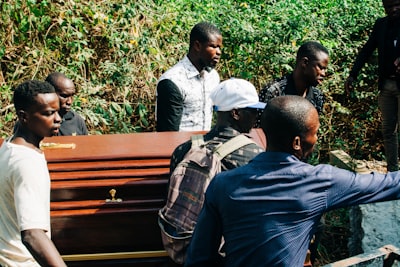When a court halts the funeral of a former Zambian president, it does more than delay mourning—it exposes fault lines within Zambia’s evolving democracy. Such episodes reveal how the intersection of legal authority, public emotion, and political legacy can trigger national introspection and even destabilization.
Power, Precedent, and Public Sentiment
The sudden stoppage of a former leader’s funeral underscores the power of courts, even in matters typically reserved for public unity and catharsis. It challenges assumptions about who controls a leader’s posthumous narrative: the state, the family, the judiciary, or the people. For many Zambians, public funerals are not mere ceremonies but touchstones of national identity and reconciliation. Interrupting them risks deepening societal rifts, especially if the court’s reasoning is perceived as partisan or opaque.
| Perspective | Pros | Cons |
|---|---|---|
| Judiciary | Asserts rule of law and impartial arbitration | May appear insensitive or political |
| Mourners/Public | Seeks closure and communal healing | Left frustrated and disenfranchised |
| Political Actors | Opportunity to reframe legacy or assert power | Risks backlash for appearing divisive |
Historical Context: Funerals as Political Theater
In Zambia, the funerals of heads of state carry immense symbolic weight, shaping discourse on unity, legacy, and future direction. The 2022 case of President Kenneth Kaunda and, now, another president’s postponed funeral highlight how disputes over burial arrangements—venue, process, or protocol—often become proxy battlegrounds for broader political or familial conflicts.
Legal Process vs. Emotional Need
Courts must balance procedural justice with community expectations. While upholding the rule of law is vital, ignoring collective grief inflicts wounds that linger. This tension isn’t unique to Zambia—many African democracies have grappled with similar dilemmas, from South Africa’s internal ANC disputes to Nigeria’s battles over ex-leader burials.
What’s at Stake
The controversy isn’t just about where or how a leader is buried, but about how societies define honor, memory, and succession. In the digital age, the optics of such delays—broadcast instantly—can quickly erode public trust in institutions.
Actionable Insight: For policymakers, ensuring transparent legal reasoning and proactive communication is paramount to maintaining social cohesion. For citizens, these events serve as reminders of the need for resilient, trusted institutions capable of absorbing shocks without fracturing.
This article was inspired by the headline: 'Mourners left waiting as court orders halt to former Zambian president’s funeral'.

Comments
No comments yet. Be the first to comment!